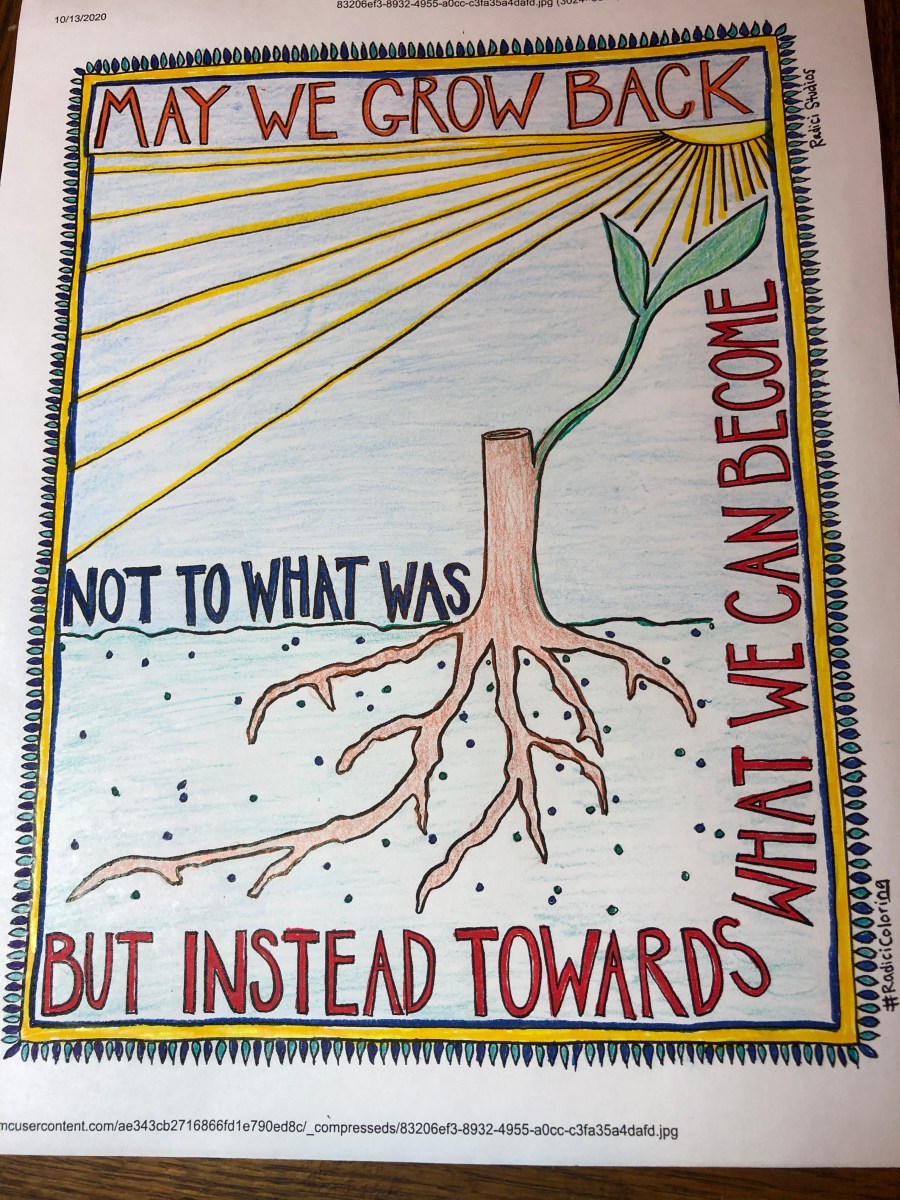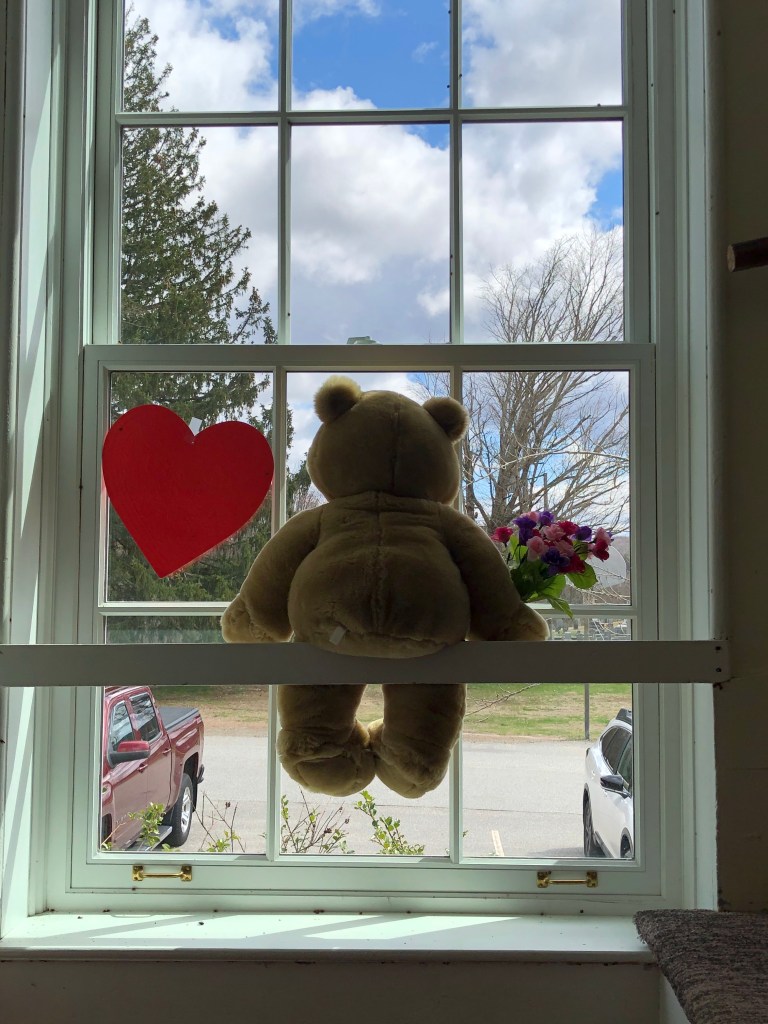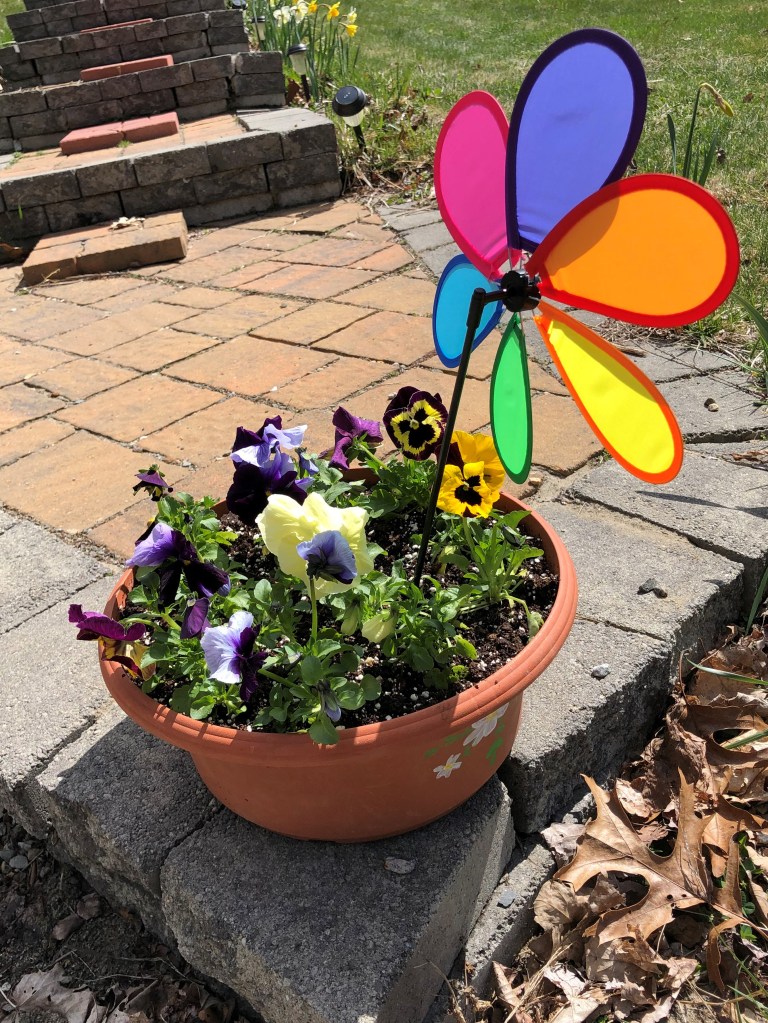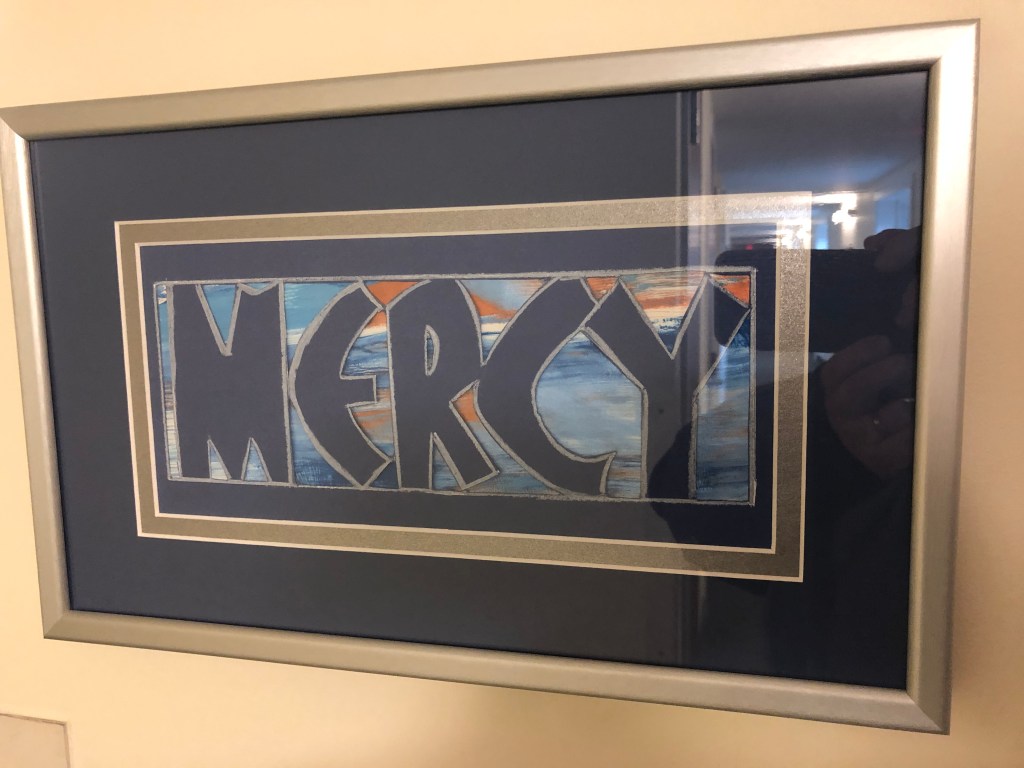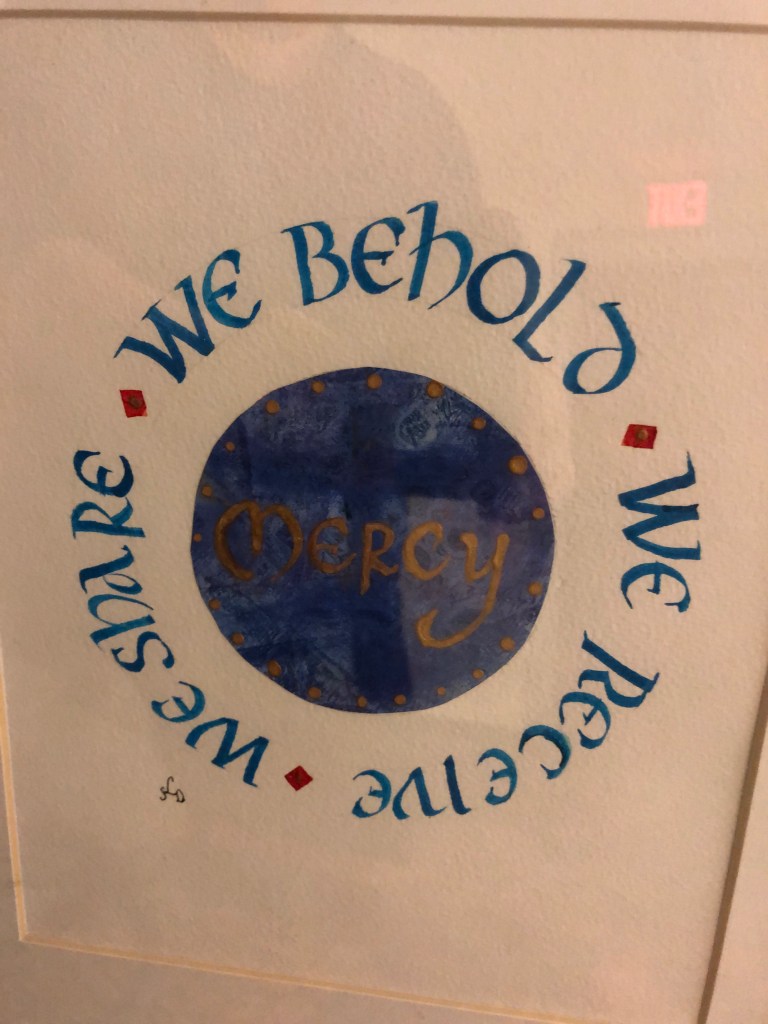I pray that you, being rooted and established in love, may …grasp how wide and long and high and deep is the love of Christ. (Ephesians 3:17-18)
Yesterday was a warm, breezy day. The tips of the daffodils could be spotted, bravely pushing their way through the chilly soil, seeking the sunshine.
Today it is snowing. Pine branches droop as they are weighed down by the falling snow. The daffodils are nowhere in sight.
Tomorrow’s forecast predicts temperatures near 50 degrees.
It is said that the only thing we can count on is that nothing remains the same.
Things change. Often in an instance.
I think about the people in Ukraine who were living ordinary lives until suddenly they were living in a country at war.
I think about people who were simply going about their lives – at school or grocery shopping or attending a concert or at a prayer service when shots were fired and their lives changed forever.
I think about the people in Syria and Turkey who went to bed one night only to be convulsed by waves of terror as an earthquake struck.
Change enters our lives in so many ways. Sometimes it’s a happy occasion like graduation, birth, a new job, or a new friend. Other times it’s a phone call, accident, betrayal, or diagnosis that alters our life forever.
And then what? How do we weather the storms? How do we navigate our new circumstances?
Paul, in his letter to the Ephesians, says that when we root ourselves in God’s love, we will discover just how trustworthy and constant that love is. Paul reminds us that even in a world where everything changes, God remains the same. God is God – yesterday, today, and forever. God’s love is “steadfast” – unchanging, always there, always available.
The phrase “rooted in God’s love” makes me think about plants or flowers or long grass that may be tossed about by damaging winds but which remain strong because they have put their roots down into the soil and water below.
So the question for all of us is – how do we root ourselves in the love of God?
When everything is turned upside down, how do we remember to call upon the faithful one?
As we journey through Lent, with our eyes on the Cross and our hope in the promise of resurrection and new life, let’s explore our roots – and how we can tap into the power of God.
Artwork: Roger Solomon



